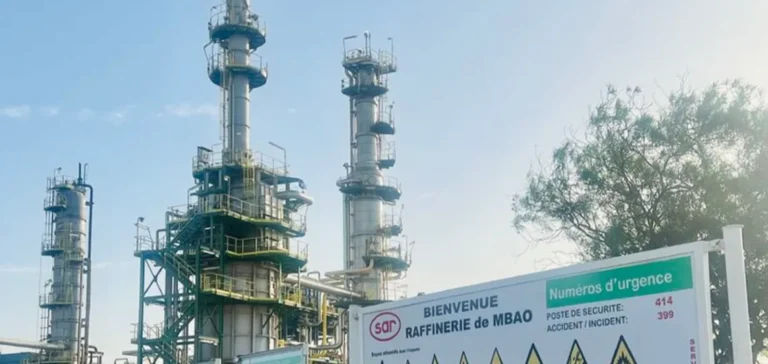Senegal is planning the construction of a second oil refinery to increase its crude processing capacity, currently limited to a single facility. Société africaine de raffinage (SAR) confirmed that the project, still in its preparatory phase, is targeted for commissioning by 2029. The announcement comes amid rising domestic demand for petroleum products and the recent launch of the country’s offshore oil production.
A response to existing SAR capacity limits
Located in Dakar, the country’s only refinery has a capacity of 30,000 barrels per day. This facility, operational for several decades, no longer meets local market needs. SAR Director General Mamadou Abib Diop stated that the new plant would raise total refining capacity to 5.5 million tonnes per year, with 4 million from the new unit.
The project would require an investment estimated between USD2bn and USD5bn. No official timeline has been set, but construction could begin around 2026. SAR plans to structure the initiative as a public-private partnership, although the project’s final governance model remains under consideration.
Talks underway with Asian partners
Negotiations are ongoing with potential investors from China, Turkey and South Korea to secure the financing needed for implementation. Senegalese authorities aim to process a greater share of the crude extracted from the offshore Sangomar field, whose production recently began.
Operated by Australian company Woodside Energy in partnership with state-owned Petrosen, the Sangomar field delivered its first cargo of crude to SAR in February 2025. This marked the start of national valorisation of the country’s oil output.
Targeted reduction of petroleum imports
According to the National Agency for Statistics and Demography, petroleum products accounted for 22.2% of Senegal’s total imports in 2024. The government seeks to reduce this dependency by expanding onshore processing capacity. This development is part of a broader strategy to integrate the oil sector into the national industrial framework.
Mamadou Abib Diop stated that “developing a second refinery is a decisive step toward Senegal’s energy sovereignty.” No further details have been provided regarding the exact location of the new facility.






















